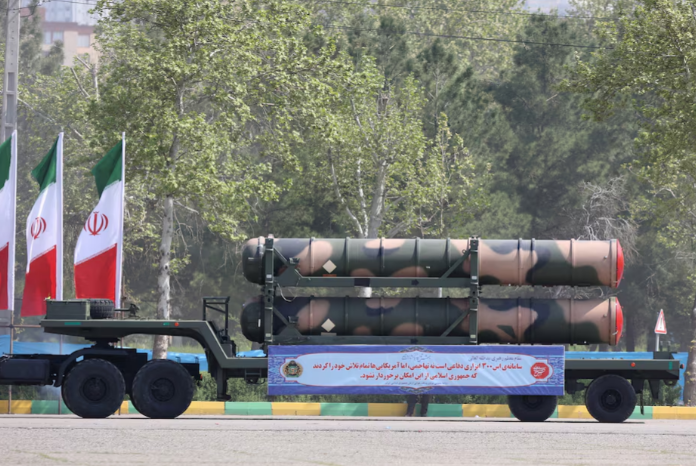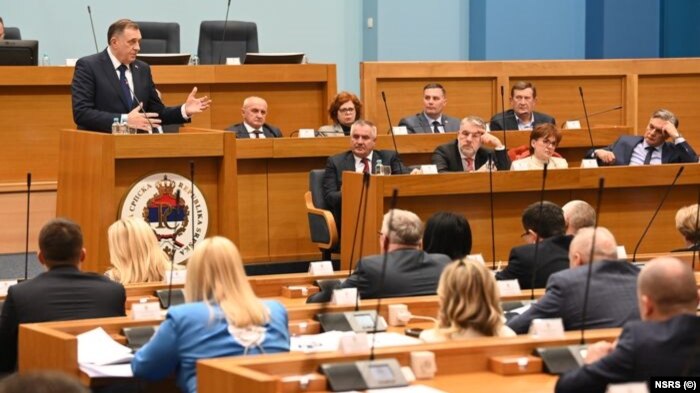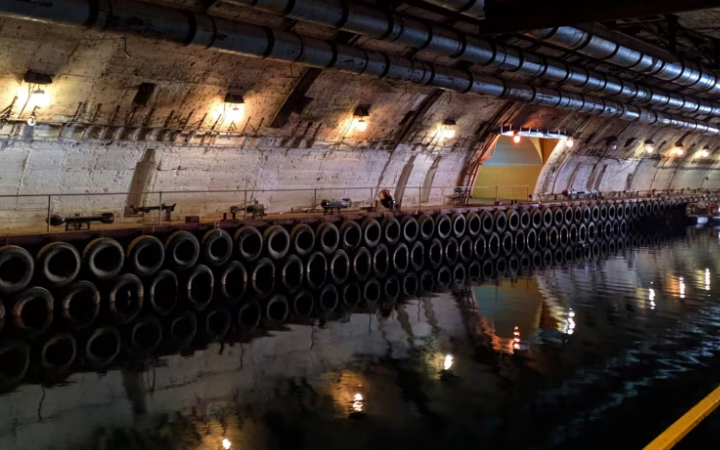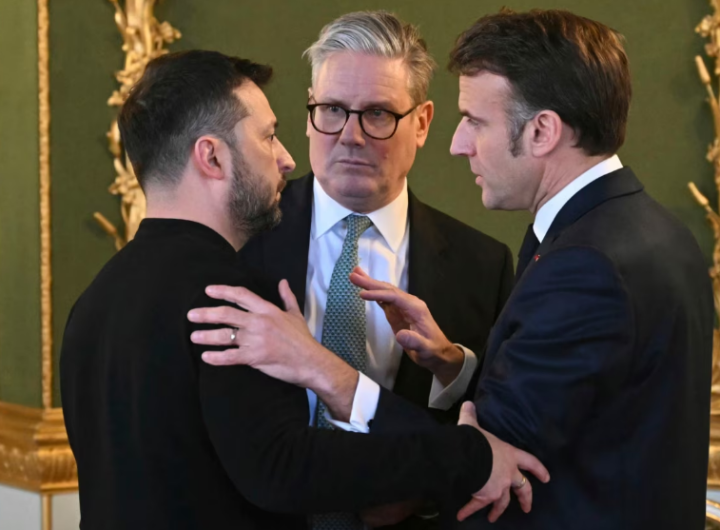
Serbian President Aleksandar Vucic was this weekend at a celebration with convicted war criminal and his political father Vojislav Šešelj.
On 12 June, a video from a Belgrade restaurant circulated on social media showing him sitting with Šešelj while singing Chetnik songs.
On the same day, Vučić told TV Happy that he had attended the wedding reception of Šešelj’s son, although, as he said, “they have different politics”.
“I am not ashamed that I went to congratulate on the christening and the wedding”, Vucic said in response to public criticism in Serbia and the region.
He added that no one would tell him “whether to disown someone who is godfather to his elder son and daughter”.
The private and political ties between Aleksandar Vučić and Vojislav Šešelj go back to the war years of the 1990s, when they were together in the Serbian Radical Party.
The policy of uniting “all Serbian states” into a so-called Greater Serbia, the warmongering speeches and the organisation of paramilitary units brought Šešelj to the dock of an international court.
In 2018, he was sentenced to ten years in prison in The Hague for war crimes against the Croatian population in the Vojvodina village of Hrtkovci.
Vučić broke with Šešelj in 2008, when the current President of Serbia founded the Serbian Progressive Party.
They went from being the closest of colleagues, through mutual accusations and insults, to Šešelj’s public support for today’s Vučić policies.
What was sung at Šešelj’s celebration?
Vučić told Happy TV about the song glorifying former Chetnik Duke Pavle Đurišić, which accompanies a recording of the celebration, that “he is not a music editor to choose music”.
A day later, the host of the celebrations also made a guest appearance on the same television station.
“I ordered the Chetnik songs first, and then others. Vucic did not order any songs,” Šešelj told TV Happy on 13 June.
The recording of Vučić and Šešelj’s gathering to hear Chetnik songs was covered by the media in the region, as well as by Croatian Defence Minister Tomo Medved.
He stated that Vucic should “focus on the situation in Serbia and the issues concerning Serbia”.
Nenad Golchevski, Director of the NGO Humanitarian Law Foundation and former spokesman for the Hague Tribunal, stressed that Vucic holds the highest office in the state and that his presence at the celabration of a convicted war criminal cannot be seen as a private act.
“A person who performs such a function has no right to do things in his private capacity that threaten the integrity and credibility of the function he performs,” Golčevski told Radio Free Europe (RFE).
What was Šešelj convicted of?
In April 2018, the Mechanism of International Criminal Tribunals, which succeeded the procedures of the Hague Tribunal, sentenced Vojislav Šešelj to ten years in prison for inciting the persecution, deportation and forced displacement of Croats in the village of Hrtkovci in Vojvodina in 1992.
He had been detained in Scheveningen since 2003, but was released in November 2014 due to his deteriorating health.
His sentence included the time he spent in detention, but he did not return to the court for the verdict.
He continued to publicly defend the policies for which he was convicted after his return to Serbia.
Despite the Hague verdict, he remained a Member of the Republic’s Parliament until 2020, when his radicals did not cross the electoral threshold.
In the year in which he was convicted for crimes in Hrtkovci, the police and his radicals prevented him from entering this Vojvodina village.
They nevertheless gathered at the entrance to Hrtkovce, exactly 26 years after the Serbian Radical Party rally and Šešelj’s speech, followed by the mass expulsions of the Croat population.
In the same year, the radicals held a party congress in the house in Hrtkovci that Šešelj had bought there.
“His policy is built on sowing and fomenting international and inter-religious hatred. He is building his position and scoring political points on this hatred,” says Nenad Golchevski of the Humanitarian Law Fund.
Burning the flags of neighboring countries, the European Union and NATO, verbal attacks, threats and insults against political dissidents are only part of the post- Hague political engagement of radical leader.
Šešelj thoroughly realises it through his literary work. Since 2001, he has published nearly 200 books.
Among them are the titles “Hrtkovci, the village where everyone knows me”, “Hrtkovci na kratko Srbislavci” and “Hrtkovci my youth”.
He wrote about Denial of the Srebrenica Genocide into three volumes, which he promoted in several cities in Serbia in 2020.
Šešelj’s publishing house, “Greater Serbia”, named after the political programme of the radicals of the wartime 1990s, has for the last few years occupied a central position at the Belgrade Book Fair, the largest literary event in Serbia.
The history of the relationship between Vučić and Šešelj
Vučić and Šešelj share a decade of war in the former Yugoslavia, while Serbia was isolated and sanctioned under the regime of then President Slobodan Milošević.
The current President of Serbia joined the war radicals in 1993 and was promoted to the post of Secretary General of the party two years later.
The warfare for a “Greater Serbia” was then an unconcealed policy of the radicals towards their neighbours, and within the country it was manifested in the persecution of the non-Serbian population and threats against the opposition and the media.
In February 2003, Vucic escorted Šešelj to the custody of the Hague court and visited him there as a legal adviser.
The split came in 2008, when Vucic and his party colleague Tomislav Nikolic left the radicals to form the Serbian Progressive Party.
The reason for the resignation was officially explained as “disagreement on the adoption of the Stabilisation and Association Agreement on Serbia’s accession to the European Union”.
Since that moment, Vojslav Šešelj has been publishing books from detention in The Hague, attacking and insulting Vucic and Nikolic, accusing them of treason and conspiracy.
Vučić responds to this, calling him a “common liar” and a “monster”.
The rhetoric on both sides began to change after Seselj returned from The Hague in 2014, when the announcements by the radical leader about the overthrow of Vučić’s government also fell silent.
Today, Šešelj is a frequent guest on national television, attacking and insulting the opposition and discussing all socio-political issues.
In the 2022 elections, he supported the presidential candidacy of Aleksandar Vučić.
Rejection of the Hague request
In 2022, Šešelj refused to be questioned about violating the rules of the Hague Tribunal.
At the same time, since 2015 Belgrade has refused to extradite to The Hague radicals Vjerica Radeta and Petar Jojic, who have been accused of intimidating witnesses in the case against their leader.
The authorities in Serbia claim that “the conditions are not met”.
In a report to the Security Council on 12 June, the President of The Hague Tribunal, Graciela Gatti Santana, described Serbia’s refusal to arrest and extradite Jojic and Radeta as one of the “greatest threats” facing the justice mechanism.
President and Chief Prosecutor Serge Brammertz also warned of the continuation of “a worrying trend of genocide denial, glorification of war criminals and provocative statements by convicted persons”.
“The international community is determined to bring war criminals to justice. It should be equally committed to spreading the truth after these trials are over,” Bramertz told the Security Council on 12 June.
What is the attitude of the authorities in Serbia towards convicted war criminals?
The trend of war criminals participating in political and public life in Serbia started in 2015, with the return of the first convicts from The Hague after serving their sentences.
“We can’t even count the cases where convicted war criminals become MPs, high-ranking officials, prominent commentators and analysts on TV, we even have a case where a convicted war criminal lectured at a military academy,” says Nenad Golchevski.
Former Pristina Corps commander Vladimir Lazarevic returned to Serbia in 2015 on a government plane with ministers who welcomed him.
This was followed by a lectureship at the Military Academy, the title of Honorary Citizen of a municipality in the south of Serbia and participation in meetings of the ruling socialist movement.
In April 2023, Nebojsa Pavkovic, convicted for crimes against the Albanian population in Kosovo, addressed primary school pupils in Vojvodina via video link from a prison in Finland.
The school’s headmistress and the Mayor of Novi Sad from the Serbian Progressive Party attended the public lesson.
Both Pavkovic and Lazarevic are authors of books published by the Serbian Government’s Ministry of Defence.
Veselin Šljivančanin also writes and promotes books.
After returning to Serbia in 2011 after serving his sentence in the Ovčari crime in Croatia, he participated in the ruling Progressive Party’s forums.
He accompanied the President of Serbia at the opening of a factory in 2017.
“You want us to tie him up? To kill him? Is that what you want?” Vucic said at the time, answering a journalist’s question why he was with a convicted war criminal.
Šljivančan and Hague convict Vinko Pandurević are recipients of awards from the Serbian army and frequent guests on national television.
The same is the case with Nikola Šainović, who after being imprisoned for crimes in Kosovo is a member of the presidency of the ruling socialists.
“The question is, is Serbia a country that supports justice and victims or war crimes? We cannot support victims when Serbs are victims and war criminals when Serbs are war criminals. We have to take one side or the other and let them decide”, says Nenad Golchevski.
The European Commission’s progress reports on Serbia point to a year-on-year trend of official glorification of criminals and denial of convictions.
The latest document seen by the RSE says that “a number of Serbian political parties and personalities, including at ministerial level, have continued to provide support and public space to convicted war criminals”.
They also note that convicted war criminals continue to spread hate speech in the public space./RSE/

 US charges Chinese hackers and government officials in a broad cybercrime campaign
US charges Chinese hackers and government officials in a broad cybercrime campaign  Russian missile experts flew to Iran amid clashes with Israel
Russian missile experts flew to Iran amid clashes with Israel  EU Calls Republika Srpska Law On ‘Foreign Agents’ A ‘Backwards Step’
EU Calls Republika Srpska Law On ‘Foreign Agents’ A ‘Backwards Step’  China could blackmail Germany via wind turbines, report warns
China could blackmail Germany via wind turbines, report warns  Activists say secret Soviet-era submarine base in Crimea has been reactivated
Activists say secret Soviet-era submarine base in Crimea has been reactivated  Starmer Says ‘Time To Act’ On Ukraine As Europe At Crossroads
Starmer Says ‘Time To Act’ On Ukraine As Europe At Crossroads